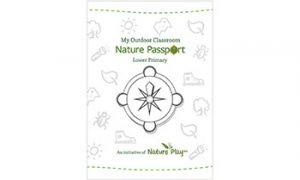

Supporting a toddler through moments of heightened emotion requires patience and thoughtful strategies. Here are some effective de-escalation techniques you can try. The following article provides information on De-escalation Strategies During A Tantrum, De-escalation Strategies During Separation Anxiety, De-escalation Strategies When A Toddler's Crying, De-escalation Strategies When A Toddler Hits. De-escalation When A Toddler Screams, De-escalation Strategies When A Toddler Bites and more.
Critical reflection is a powerful tool for understanding and addressing challenging behaviours in young children. Here are some reflective questions you might consider when analysing a child's behaviour. The following article provides information on: Reflective Question When Analysing A Child's Behaviour, Applying These Reflection Questions In Practice, Example in Practice, Example Of Reflection Questions In Action and more.
Supporting toddlers aged 2–3 years with challenging behaviors requires understanding their developmental stage and using strategies tailored to their needs. Here are some effective approaches:
Social Constructivist Theory in Early Childhood Education is a learning approach grounded in the idea that children actively construct knowledge through their social interactions and cultural experiences. Rather than viewing learning as an individual process of acquiring information, social constructivism emphasizes that children build understanding through communication, collaboration, and shared experiences. The following article provides information on Key Concepts, Applications In Early Childhood, Modern Relevance In Childcare and more.
Behaviourism is a learning theory developed by psychologists B.F. Skinner and John Watson, focusing on how behavior is shaped through reinforcement. It is based on the idea that children learn through stimulus-response interactions, where positive and negative reinforcement influence behaviours. The following article provides information on Key Concepts, Applications In Early Childhood, Modern Relevance In Childcare and more.
Supporting a toddler with challenging behavior requires a combination of strategies and resources tailored to their developmental stage. The following article provides information on Strategies To Support Toddlers With Challenging Behaviour, Positive Reinforcement For Toddlers, Teaching Emotional Regulations To Toddlers and more.
Some children find it difficult to process the information received from their senses. Those who feel sensory inputs too intensely – like colours appearing excessively bright or fruits tasting too grainy – can become sensory sensitive or sensory avoidant. The following article provides calm-down strategies for over-responsive children that you can use within the learning environment.
Anxiety is one of the most common reasons why children don’t want to leave home and their families. If not addressed at the right time, it can worsen into a debilitating condition, seriously affecting learning too. The following article provides information on identifying and supporting children with anxiety.
Behaviour management can be challenging sometimes, with energetic toddlers and young children eager to explore their physical and social environment. The following article provides positive guidance strategies and is how Educators can implement them within the learning environment.
 As an Educator in Australia, your pay rate falls under the Children’s Services Award 2010. This award states the minimum amount that an employer can… Read More
As an Educator in Australia, your pay rate falls under the Children’s Services Award 2010. This award states the minimum amount that an employer can… Read More
 When working as a qualified Early Childhood Teacher (with a university degree) within a service, your rate of pay will come from the Educational Services… Read More
When working as a qualified Early Childhood Teacher (with a university degree) within a service, your rate of pay will come from the Educational Services… Read More
 When working as a Diploma Qualified Educator your pay rate is from the Children's Services Award 2010. This Award states your minimum rate of pay… Read More
When working as a Diploma Qualified Educator your pay rate is from the Children's Services Award 2010. This Award states your minimum rate of pay… Read More
 When working as a Cert 3 Qualified Educator, your pay rate is from the Children's Services Award 2010. This Award states your minimum rate of… Read More
When working as a Cert 3 Qualified Educator, your pay rate is from the Children's Services Award 2010. This Award states your minimum rate of… Read More
 Educational Leaders play a crucial role in their early childhood service by ensuring that the educational program aligns with best practices and supports the holistic… Read More
Educational Leaders play a crucial role in their early childhood service by ensuring that the educational program aligns with best practices and supports the holistic… Read More
 In early childhood education and care, ratios are more than a technicality—they are a frontline safeguard. Every child deserves responsive supervision, emotional connection, and developmental… Read More
In early childhood education and care, ratios are more than a technicality—they are a frontline safeguard. Every child deserves responsive supervision, emotional connection, and developmental… Read More
 With the new national child safety reforms kicking in on 1 September 2025, early childhood services like yours have a real opportunity to lead the… Read More
With the new national child safety reforms kicking in on 1 September 2025, early childhood services like yours have a real opportunity to lead the… Read More
 Here’s a comprehensive Mobile Phone and Smart Watch Policy tailored for early childhood education and care (ECEC) services in Australia, aligned with the latest 2025… Read More
Here’s a comprehensive Mobile Phone and Smart Watch Policy tailored for early childhood education and care (ECEC) services in Australia, aligned with the latest 2025… Read More
 The Sea of Fish Challenge is a national initiative that invites children, educators, families, and communities to create and display fish artworks as a symbol… Read More
The Sea of Fish Challenge is a national initiative that invites children, educators, families, and communities to create and display fish artworks as a symbol… Read More
 Across the early childhood education and care sector, educators are sounding the alarm: current staffing ratios are insufficient to deliver safe, meaningful, and developmentally appropriate… Read More
Across the early childhood education and care sector, educators are sounding the alarm: current staffing ratios are insufficient to deliver safe, meaningful, and developmentally appropriate… Read More

According to the Educators’ Guide to the Early Years Learning Framework, documentation is the practice...
See more...
The My Outdoor Classroom Nature Passport package supports educators in taking children outdoors for enriched play-based learning...
See more...
Actively managing waste in an early learning service is essential for sustainability, cost efficiency, and environmental...
See more...© 2009-2025 Aussie Childcare Network Pty Ltd. All Rights Reserved.
